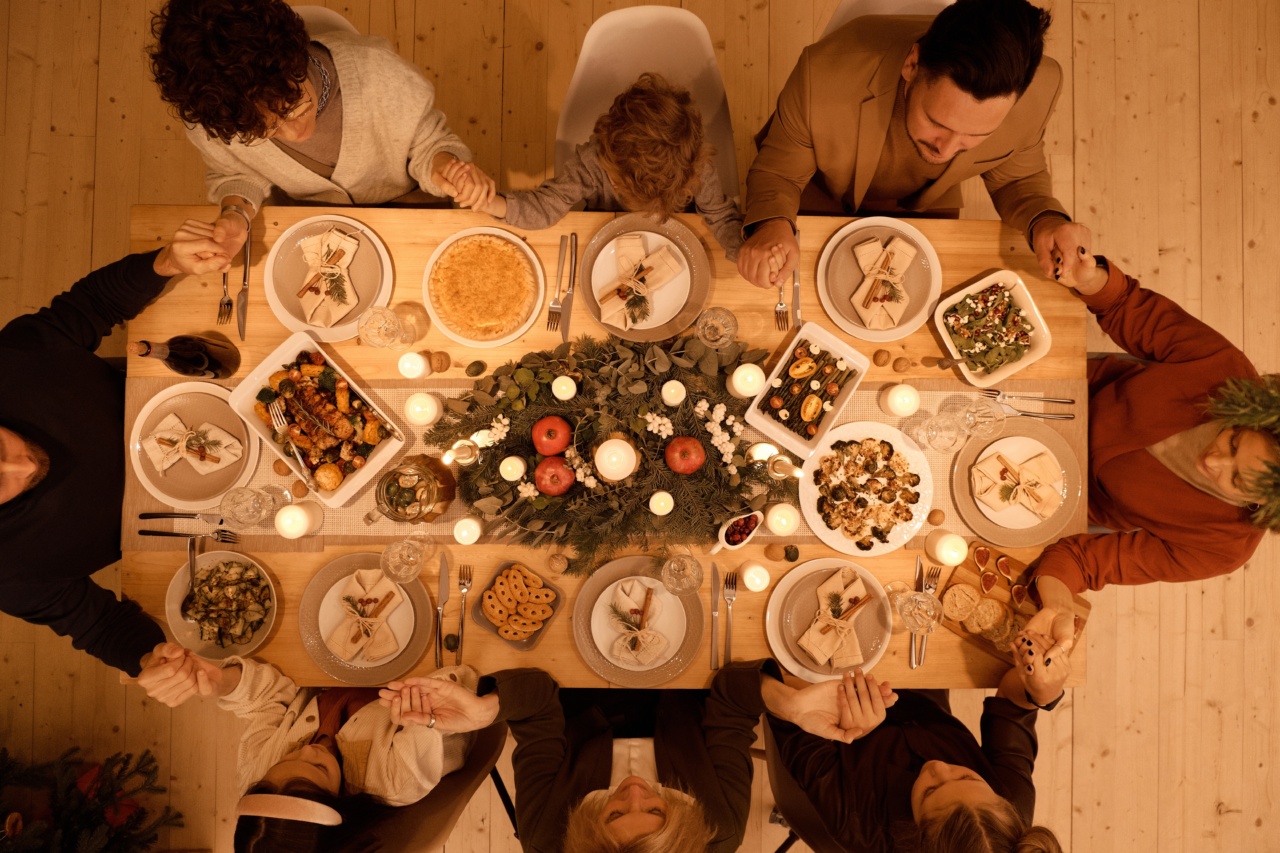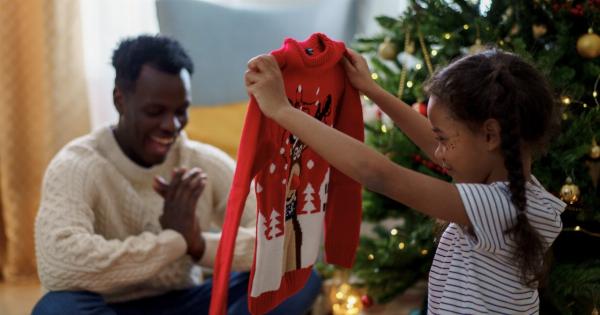Christmas is a time of joy and merriment for many, but for those with allergies, it can be a challenging time of trying to navigate through all the potential triggers.
However, with some careful planning and consideration, it is possible to celebrate Christmas while keeping allergies in mind. In this article, we will explore some tips and ideas to help you enjoy the holiday season without compromising your health.
Allergy-Friendly Christmas Decorations
When it comes to decorating for Christmas, there are plenty of allergy-friendly options available. Consider opting for artificial Christmas trees instead of real ones, as real trees can harbor pollen, mold, and other allergens.
If you prefer a real tree, make sure to give it a good shake outdoors to remove any loose allergens before bringing it inside.
When choosing ornaments and decorations, be mindful of materials that may trigger allergies. Avoid decorations made from natural materials such as pinecones or dried fruits, as they can easily collect dust and mold.
Instead, opt for non-allergenic materials like plastic or glass.
Allergy-Friendly Christmas Meals
The highlight of Christmas for many is the traditional holiday meal. However, it can be challenging to navigate the dinner table when you have allergies.
If you or someone in your family has food allergies, there are a few things you can do to ensure a safe and enjoyable meal.
Firstly, communicate with your guests or host about any dietary restrictions or allergies in advance. This will allow them to plan the menu accordingly and make necessary accommodations.
If you are hosting, consider offering a variety of dishes that cater to different dietary needs, such as gluten-free, nut-free, or dairy-free options.
Ensure that all ingredients used in the preparation of the meal are clearly labeled, especially if there are common allergens present.
Cross-contamination can be a significant concern, so it’s essential to keep allergen-containing ingredients separate from those that are allergen-free. Use separate utensils, cutting boards, and cookware to prevent cross-contact.
Allergy-Friendly Gift Giving
Gifts are a significant part of the festive season, but it can be challenging to find suitable presents for someone with allergies.
Opt for non-allergenic options such as gift cards or experiences, which can eliminate the risk of purchasing something that may trigger an allergic reaction.
If you want to give a physical gift, consider items that are not likely to cause allergies, such as books, clothing made from natural fibers, or non-toxic skincare products. Always check the labels for any potential allergens before making a purchase.
Allergy-Free Christmas Parties
Attending or hosting a Christmas party can be a bit daunting when you have allergies. However, with some planning, it is possible to create a safe and enjoyable environment for everyone.
If you are attending a party, it’s best to inform the host of your allergies in advance. This will allow them to take precautions and ensure that there are safe options available for you to enjoy.
If necessary, consider bringing your own food or snacks to avoid any potential allergens present at the party.
If you are hosting a party, check in with your guests about any dietary restrictions or allergies they may have. Plan your menu accordingly and clearly label all dishes to indicate any potential allergens.
Creating separate areas for allergen-free options can help prevent cross-contamination.
Allergy-Friendly Christmas Traditions
Christmas is all about traditions, but sometimes these traditions can pose challenges for those with allergies.
However, it’s essential to remember that you can still enjoy the holiday season by adapting or creating new traditions that are allergy-friendly.
For example, if going caroling triggers allergies due to cold weather or exposure to outdoor allergens, consider indoor activities like watching classic Christmas movies or hosting a game night with family and friends.
Building gingerbread houses can be a fun and allergy-safe alternative to baking cookies together.
Decorate the Christmas tree as a family, but use non-allergenic materials like plastic ornaments or homemade crafts.
Consider using non-scented candles or flameless LED candles instead of scented ones, as fragrances can trigger allergic reactions in some individuals.
Allergy-Free Stockings and Treats
Christmas stockings filled with treats are a beloved tradition for many. However, for those with allergies, it’s essential to ensure that the contents of the stockings are safe to consume.
Instead of filling stockings with traditional treats that may contain common allergens, look for allergy-friendly alternatives. There are plenty of brands that offer allergen-free candies and snacks that are delicious and safe for consumption.
Check the labels carefully to ensure that the ingredients do not include any allergens.
Consider adding non-food items to the stockings, such as small toys, stationery, or mini puzzles. Get creative and personalize the stockings based on each person’s interests and hobbies.
Managing Allergies during Holiday Travel
If you plan to travel during the holiday season, it’s essential to take some extra precautions to manage your allergies. Whether you are visiting friends and family or going on a vacation, these tips can help ensure a safe and allergy-free trip.
If you are staying in a hotel, inform the staff about your allergies in advance. Request a hypoallergenic room, free from things like dust mites or pet dander. Bring your own pillow and bedding covers to reduce exposure to potential allergens.
Pack your medications, such as antihistamines or an epinephrine auto-injector if necessary. It’s also a good idea to carry a medical alert card or bracelet that clearly states your allergies and emergency contact information.
Allergy-Free Christmas Crafts
Getting creative with Christmas crafts is a wonderful way to celebrate the holiday season. However, it’s important to choose projects that are safe and allergy-friendly.
Make sure to avoid materials that may cause allergic reactions, such as certain types of glue, paints, or fabrics. Opt for water-based, non-toxic materials that are less likely to trigger allergies.
Use gloves and masks when handling potentially irritant materials to minimize exposure.
Consider making decorations or crafts that have a lower risk of gathering dust or mold. For example, creating paper snowflakes, stringing popcorn garlands, or making salt dough ornaments can be fun and safe options.
Allergy-Aware Guests and Hosts
If you are hosting a Christmas gathering, it’s crucial to be aware of any potential allergens that may be present in your home. Here are some steps you can take to ensure your guests’ safety:.
1. Clean your home thoroughly before the event to remove dust, pet dander, and any potential allergens..
2. If you have pets, keep them in a separate area during the party to minimize exposure for guests with allergies..
3. Provide a designated area for allergen-free food to prevent cross-contamination..
4. Clearly label all dishes with ingredients to help guests with dietary restrictions or allergies decide what is safe for them to consume..
5. Be prepared with non-allergenic options for guests with specific dietary needs..
By following these steps, you can create an inclusive and safe environment for everyone to enjoy the festivities.































